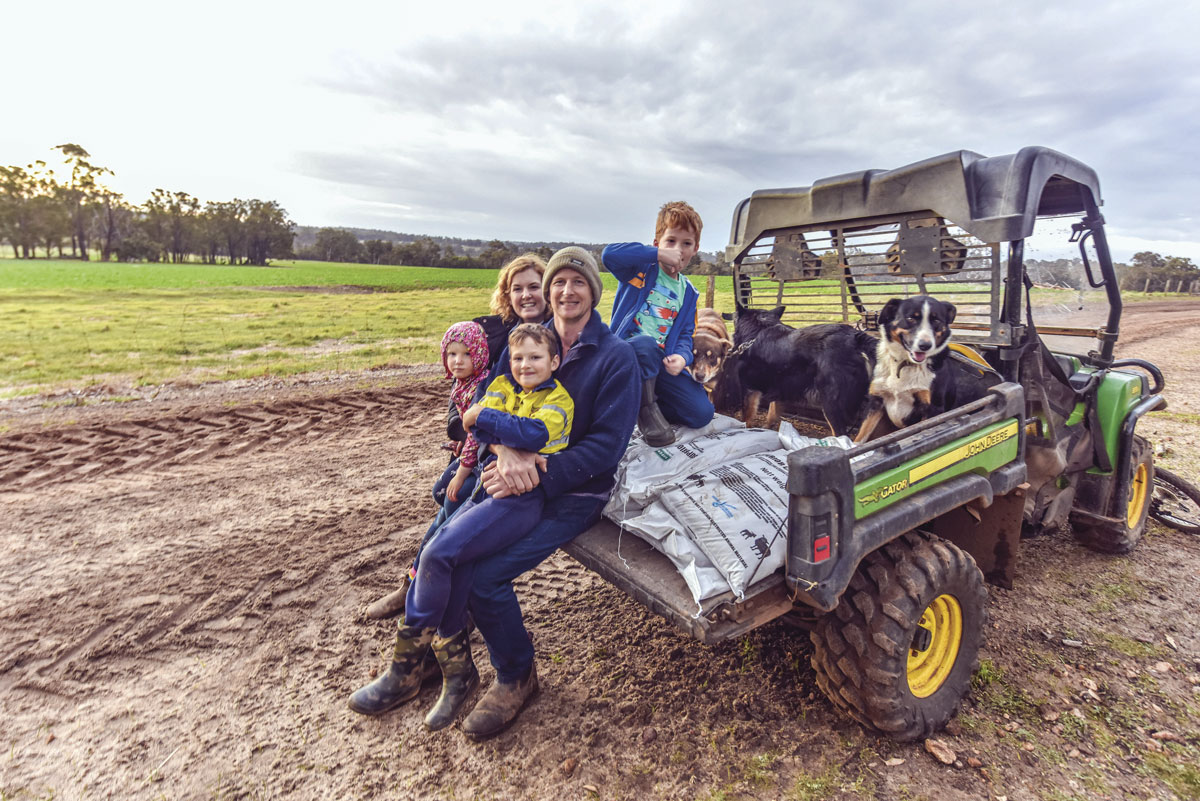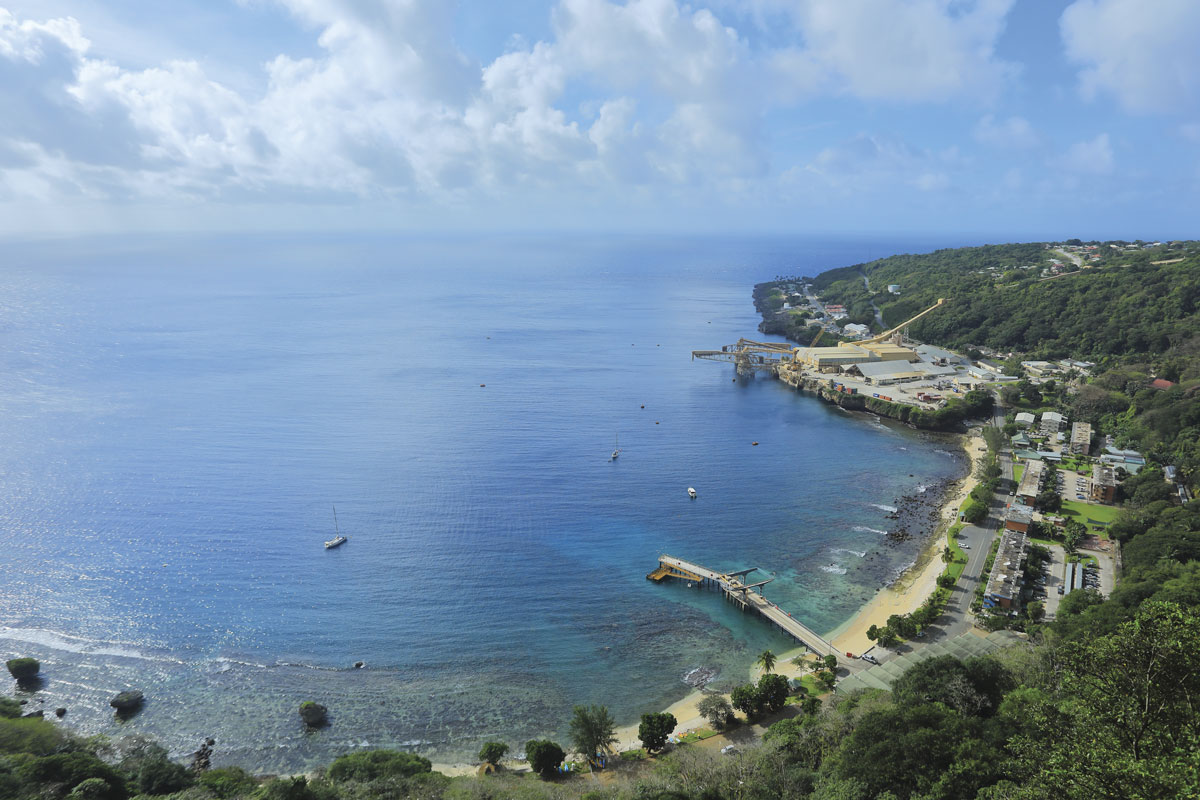The year may very well be winding down, however, medicine does not. People continue to get sick and look to their doctors and other health professionals to help them get back on their feet. In the metro area, patients almost everywhere now, are spoilt for choice. In rural and remote areas, it’s a different story. We asked several rural GPs what their final few weeks of 2019 will entail.

Dr Emily, Webb, GP, Kojonup
Where do you live and work? How long have you been there?
I live on a farm in the Shire of Kojonup. My husband moved to the farm in 2007.
What drew you to this destination?
I am a country girl and I really enjoy living on a farm. We have lots of beautiful trees and hills so the scenery is sensational and the community is a supportive, close-knit farming community so it really is a great spot to live. We are only 1.5 hours from Albany and 2.5 hours from Perth and Bunbury, so we are really in the middle of everywhere.
3 What are the demographics of your community?
The community of Kojonup is a strong community with definitely a younger demographic than you see in a lot of coastal towns. The main industry is agriculture.
Farming in our area is mixed sheep and cropping, so we have farm workers, shearing contractors and required support industries based in our town so this attracts lots of people from all over the world both for seasonal work and to live.
We have a local museum, Kodja Place, which celebrates the town diversity through the stories of the original inhabitants, the local Aboriginal people, and then the stories of the first migrants who settled the farming areas, coming mainly from the UK and Italy. I love that my children are growing up in a small community.
What are the most pressing health issues in your community?
Distance to services!
How easy is it for them to access health services?
We are recruiting for more doctors, which we greatly need in the Kojonup/Katanning areas. Telehealth and the WACHS emergency telehealth service has greatly improved access to emergency services in our local hospital, for both patients and for staff. We are 40km from our nearest regional hospital which has the local pathology, radiology and inpatient services.
What is the impact of that on how you go about your medical practice?
It was very daunting when I first started to sometimes be ‘the only doctor in town’ but I do love the variety and the challenge that this provides.
In rural medicine you do need skills across all areas of general practice. I currently don’t do emergency on-call work as I have small children, so I try to wave the flag for the ‘I don’t do it all rural doctor’.
I feel so fortunate to have had many supportive colleagues around me who have helped my career, and a system that has locums in the local ED which has allowed me to focus on mainly general practice.
We need to change the image of rural medicine being an 80-hour-a-week job (though the work is here if you would like it!). I hope, as my children grow, to work more in the hospitals, but currently I am happy to do predominantly office-based work, and feel lucky to be able to have the opportunity to work as a doctor and enjoy my family.
What are the highlights and pitfalls of living and working alongside your patients? How does this affect your family?
I feel that this is a problem for GPs in the city and larger regional areas as well, and I try to maintain boundaries as best as I can.
How do you maintain connections with your colleagues?
I am currently working by myself in a single-doctor practice. I started in October this year and am so far enjoying the challenge! I like to attend conferences to maintain medical connections.
I find with rural general practice you do take on the role of being a traditional base for patients and I do send patients to lots of other colleagues, so I do feel like I am part of a team with the many other health professionals in our town and our greater regional area.
Do you feel supported in your practice from colleagues and city-based organisations?
Yes!
Where will you be over the festive season? What will you be doing? What’s on the menu?
Christmas always coincides with our very busy harvest time so we really, really look forward to our January camping holiday after the busy period! Thankfully there is a complete harvest and truck movement ban over Christmas, and this year my family is coming to stay for a few days.
We usually try to have a traditional ham and roast vegetables on Christmas, and my mum makes a Christmas pudding trifle. Yabbies from the dam are also usually involved!
 Dr Christopher Lam, GP, Christmas Island
Dr Christopher Lam, GP, Christmas Island
It’s totally appropriate that Beechboro GP, Dr Christopher Lam is heading to Christmas Island for a couple of weeks’ locum service from December 20. He’d put his hand up for a similar locum in 2016 and enjoyed it so much, he’s returning.
“Christmas Island is a beautiful place to work and the people are really friendly. There are less than 2000 people on the island – about 1500 are permanent. Doctors looking after them need to have emergency experience,” Christopher said.
“I took some time out of my regular GP practice to work in the ED at Midland for six months. My practice was really supportive then and of me going back to Christmas Island.”
“I am keen to experience different situations and different ways of thinking about medical problems so I find it really useful to do locums.”
The Christmas Island locals have regular contact the Australian Federal Police and the Royal Australian Navy but Christopher said the locals were familiar with doctors coming and staying for various lengths of time.
While GPs need to have a range of skill sets, Christopher said critical medical emergencies are flown to Perth and that’s a 10-hour flight away.
Christopher works in a 10-doctor practice in Beechboro, when he’s on Christmas Island, there are no more than three GPs on rotation.
“There is a fairly well-equipped hospital on the island but staff have to be up-to-date with skills because they have to do everything.”
This visit, Christopher will be accompanied by his partner Tina.
“She joins me from time to time on my locums. If it is short-term and closer to home, she tends not to, but we both love Christmas Island. She really enjoys this aspect of my work.”
Dr Olumuyiwa Jegede, GP, Wyalkatchem
Where do you live and work? How long have you been there?
I work and live in Wyalkatchem, in the Wheatbelt. It’s a small community, I reckon; with a population between 600 and 1000. I started here about 15 months ago.
What drew you to this destination?
Rural practice is different from city practice. You tend to wear different hats as there is always a wide variety of presentations. And although it can be challenging, it’s also equally rewarding. By the way, I love new challenges and so the decision to move here was a rather easy one for me.
What are the demographics of your community?
The population is evenly distributed between the middle-aged and the elderly. It’s a predominantly farming community.
What are the most pressing health issues in your community?
Mental health problems seem to be on the rise. However, chronic diseases such as hypertension, diabetes, obesity and musculoskeletal problems make up the bulk of presentations. Ageing with its attendant medical and psychosocial issues also deserve a mention.
How easy is it for them to access health services?
There is a local hospital which provides a 24-hour service, with an on-call doctor most week days. Availability of telehealth services provide support in certain emergency and inpatient scenarios. Also, few specialist consultations are done via videoconferencing.
However, most patients still have to travel long distances to access specialist and allied health services. The closest facility equipped with CT scanning is about 100km away.
What is the impact of that on how you go about your medical practice?
You sometimes have to think outside the box and improvise with your approach to patient management, while also maintaining accepted standards of care, especially in cases where long-distance travel might not be either suitable or convenient for the patient.
What are the highlights and pitfalls of living and working alongside your patients? How does this affect your family?
Being a relatively small town, a lot of people have long standing connections and relationships. Therefore, they tend to be aware of what’s happening in each other’s lives.
This is somewhat also brought to fore in their relationship with the doctor and his family. It generally makes you feel a part of the community.
What are the highlights and pitfalls of living and working alongside your patients? How does this affect your family? How do you maintain connections with your colleagues?
Living rural can make you feel somewhat isolated. However, I belong to a few professional groups on social media platforms and that helps. Also, we occasionally connect during CPD events and conferences.
Do you feel supported in your practice from colleagues and city-based organisations?
Yes, I do. The practice principal is always a phone call away. I’m also always on the lookout for webinars to link up to. Nowadays, there is a wealth of resources available online, on RACGP website and other platforms. I make good use of these.
Moreover, I make it a point to always attend the emergency medicine education and training sessions at Northam Hospital, which are organised every few months. It’s an invaluable resource for rural GPs, especially those involved in hospital ED cover.
Where will you be over the festive season? What will you be doing? What’s on the menu?
I’ll be having a two-week break. I intend to spend it with family. I might take a trip down south, see more of the country.

